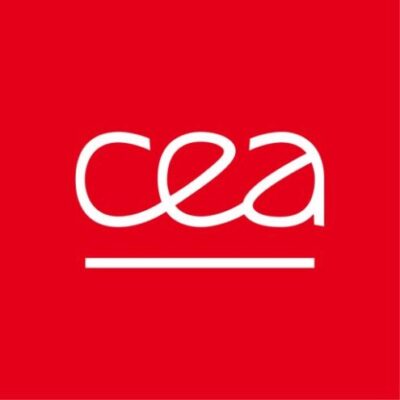
Commissariat à l'énergie atomique et aux énergies alternatives

Description
CEA (Commissariat à l’Énergie Atomique et aux Énergies Alternatives) is a leading French energy research and technology organisation with over 80 years of expertise. Bringing together more than 20,000 professionals, CEA develops innovative solutions across four strategic sectors: low-carbon energy, digital technologies, future healthcare, and national defence and security. Within CEA, CEA-Liten (Laboratory for Innovation in Technology for Energy and New materials) is fully dedicated to advancing the energy transition. It offers a comprehensive, integrated approach to energy innovation—spanning multiple technologies, energy vectors, and scales—while ensuring economic viability and environmental responsibility.
Role in the project
CEA is the coordinator of the ZIMBA project and plays a central role in its implementation. It leads the design of the innovative Absorption Heat Transformer (AHT) system (WP1) and oversees the installation and testing of the 15 kWth prototype (WP3). Through these activities, CEA-Liten contributes its technical expertise and coordination capabilities to help achieve the project’s goal of decarbonising industrial heat.

Politecnico di Milano

Description
Established in 1863, Politecnico di Milano (POLIMI) is Italy’s largest technical university, renowned for training engineers, architects, and industrial designers. With over 48,000 students and a strong international reputation, POLIMI was ranked 23rd globally for Engineering & Technology in the 2024 QS World University Rankings by subject. Its Department of Energy hosts ReLab, a research group focused on renewable heating and cooling technologies. ReLab brings advanced expertise in thermodynamic systems and life cycle assessment to the ZIMBA project.
Role in the project
POLIMI is responsible for developing the baseline ammonia/water Absorption Heat Transformer (AHT) system and will lead WP2 on manufacturing and pre-characterization of key components, including the baseline AHT and ejector. This involves selecting and manufacturing system components, testing and validating various absorber configurations, upgrading facilities for vapor production testing, and commissioning the complete system. POLIMI also leads the environmental and sustainability assessments, including Life Cycle Assessment (LCA), Social LCA (sLCA), and Life Cycle Costing (LCC).

Clauger

Description
CLAUGER is a global specialist in the design, manufacturing, installation, and maintenance of industrial refrigeration systems and heat pumps. With over 54 years of experience, the company has established itself as a key player in supporting industries in their energy and environmental transitions. Headquartered in France, CLAUGER employs more than 2,700 professionals and operates through 18 subsidiaries worldwide, generating an annual turnover of approximately €800 million. Its integrated approach and customer-centric solutions have made CLAUGER a trusted partner across a wide range of industrial sectors.
Role in the project
In the ZIMBA project, CLAUGER plays a key role in bridging the gap between research and industrial application. The company is responsible for identifying industry and customer needs relevant to the project, ensuring that the developed technology aligns with real-world demands.
CLAUGER also supports the industrialization process, providing expertise in the sizing, selection, and integration of refrigeration components. Additionally, the team offers guidance on the design and manufacturing of the system, contributing to a robust and market-ready solution.

AMIRES

Description
AMIRES is a consulting and management company specialising in research, development, and innovation (RDI) projects. Since its founding in 2009, the company—headquartered in Prague, Czech Republic—has supported international teams across Europe, helping them reach their goals through expert strategic and administrative guidance. AMIRES accompanies projects through every phase of their lifecycle: from proposal development and negotiation to execution, coordination, and final exploitation. Their services bridge the gap between research, industry, and policy, facilitating effective technology transfer and real-world impact.
Role in the project
In ZIMBA, AMIRES leads the dissemination and communication activities, ensuring that the project’s achievements are widely shared with stakeholders, industry, and the broader public. AMIRES also provides strategic and operational support to the project coordinator and work package leaders, contributing to the overall success and smooth execution of the project.
Key staff

OST Ostschweizer Fachhochschule

Description
Formed in 2020 through the merger of FHS St. Gallen, HSR Rapperswil, and NTB Buchs, the Eastern Switzerland University of Applied Sciences (OST) is a dynamic institution serving six cantons in Eastern Switzerland and the Principality of Liechtenstein. Drawing on more than 170 years of tradition, OST is a regional leader in education and applied research, home to 3,800 students, 1,500 executive education participants, and over 1,000 active research projects.
At the forefront of OST’s contribution to energy innovation is the Institute for Energy Systems (IES), a renowned centre for heat pump research and development. The IES operates the Heat Pump Test Centre (WPZ), Switzerland’s accredited test laboratory for heat pumps, offering unparalleled insight into the performance of commercial systems and components. OST’s expertise lies in thermodynamics, fluid dynamics, and advanced vapor compression technologies.
Role in the project
OST plays a pivotal role in the ZIMBA project by leveraging its technical expertise and advanced infrastructure to support the development and market readiness of the AHT technology. As leader of WP 4, OST is responsible for driving the quick, wide, and sustainable market penetration of the ZIMBA solution. It leads the collection of end-user requirements to ensure the technology meets real industrial needs and is also in charge of upgrading its high-temperature heat pump laboratory to safely accommodate ammonia (NH₃) for pretesting the baseline AHT system. Additionally, OST defines the prototype testing program and leads the market analysis and business model development to support the commercial deployment of the AHT system.